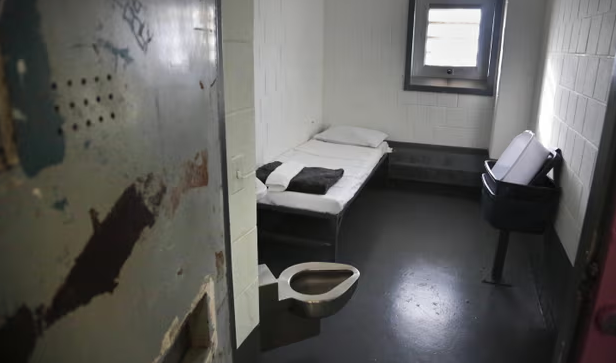I Spent 16 Years in Solitary - This is What It Did To Me

The following essay "I spent 16 years in solitary in South Carolina. This is what it did to me" is written by Randy Poindexter, who spent 16 years in solitary confinement while incarcerated in South Carolina, and is featured on the Death Penalty News blog.
Excerpts are included below.
*****
For 16 years, I lived in a concrete cell. Twenty-three hours a day, every day, for more than 3,000 days, South Carolina kept me in solitary confinement. I was a young man before I was sent to solitary — angry, untreated and unwell. I made mistakes. But I wasn’t sentenced to madness. That’s what solitary did to me. My mental health worsened with each passing day. At first, paranoia and depression set in. Then, hallucinations and self-mutilation. I talked to people who weren’t there. I cut myself to feel something besides despair. I could do nothing as four of my friends and fellow prisoners took their own lives rather than endure another day of torturous isolation.
Solitary confinement nearly destroyed me. I live with its physical and mental scars every single day. Even now, 16 years after my release, I’m haunted by the memories of prolonged isolation.
I was lucky enough to get out eventually and receive the psychiatric care that I desperately needed. But I needed it sooner. In prison, I was labeled as a behavioral problem — not a person with mental illness. My emotional and mental outbursts should have been treated with counseling, medication and care. Instead, I was punished and sent to rot in a hole. I still think about my friends who didn’t survive. That’s what solitary does. It breaks everyone in different ways. I can’t help but reflect on my experience, as the state of South Carolina is scheduled to execute Mikal Mahdi, whose life was also destroyed by solitary confinement, on Friday. I don’t know him, but I know the pain and isolation he endured.
In South Carolina, in 2022, the prison system adopted new rules limiting the use of solitary in the juvenile justice system. While these reforms came far too late to help the teenage Mikal Mahdi, it’s not too late to recognize the devastating toll that thousands of hours in isolation took on the person he became.
If the state of South Carolina executes Mikal without confronting the system that helped destroy him, we’re not just failing him. We’re dooming the next man too.
*****
You can read the full essay "I spent 16 years in solitary in South Carolina. This is what it did to me" by Randy Poindexter at the Death Penalty News blog. Death Penalty News operates as a dedicated nonprofit organization, based in Paris, France, and staunchly opposes the death penalty in all circumstances, asserting that the death penalty constitutes a violation of fundamental human rights, infringing upon the right to life and the right to be free from torture or cruel, inhuman, or degrading treatment or punishment.










